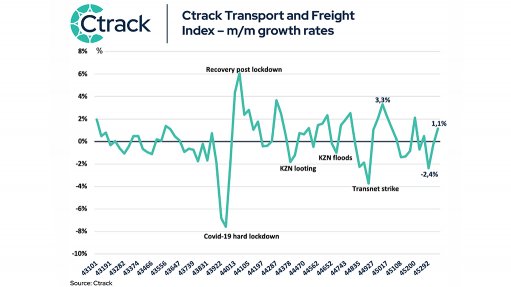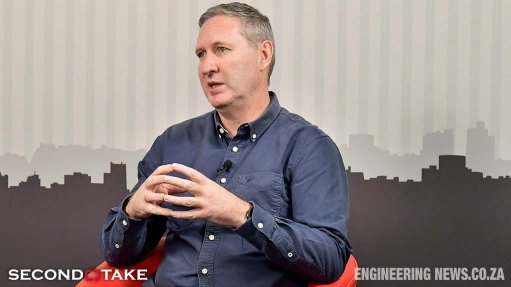How ERP can power-up operations in the construction industry
This article has been supplied as a media statement and is not written by Creamer Media. It may be available only for a limited time on this website.
The construction industry is a multifaceted one. It is challenging, therefore, to manage all the moving parts in order to reach completion and the desired result for all stakeholders. Resource management is a particularly important aspect of the construction lifecycle, and if implemented correctly, can save costs, improve the project process, and ensure client satisfaction.
As with any other industry, digitisation has allowed companies to automate the more mundane and time-consuming processes so that personnel are freed up to focus on the tasks that require advanced skills and expert attention. A good example of this is to implement an Enterprise Resource Planning (ERP) system which enables construction companies and their contractors to manage projects effectively and efficiently from start to finish.
ERP allows multiple departments in a business to share information and collaborate. It provides a single system that is divided into modules for each department, allowing them to operate using a linked and integrated platform and database. ERP offers the right level of integration and diversity to fit the business, by allowing the user to purchase the system in the modules required rather than as a one-size-fits-all solution.
ERP serves to streamline efficiency and accuracy in business processes, focusing on enhancing the journey from receiving an order through to receiving revenue from that order. It can be applied to any of the business processes within an organisation, including payroll and benefits, HR management and reporting.
Many studies have demonstrated the benefits of ERP systems in construction, and have shown that top management involvement and awareness, training and support for users, and having the right implementation team, are the most significant factors in ERP implementation success. These findings conclude that, despite being a digital process at its core, ERP is largely impacted by the human factor.
The top three benefits of construction ERP software:
The primary benefit is its ability to forecast costs throughout the lifecycle of a project. Ultimately, a full plant management system allows project managers to know exactly when equipment is available – especially if there are multiple projects on the go – and how it can be allocated more effectively.
It enables collaboration on projects. With multiple stakeholders working on a project, the adoption of document management and collaboration tools is critical for the effective sharing of information and ensuring project efficiency.
ERP software, combined with technological advances and the Internet of Things, can help ensure compliance of aspects of the construction process such as safety behaviour, which can be easily monitored.
Return on Investment (ROI)
Peter Damhuis, Vice President MEA of RIB Software, advises: “When getting on board with construction software, companies need to ensure that they choose the right package, from the right provider, and that they are going to see a return on their investment. Evidence of ROI can be seen, for example, in how a truly comprehensive ERP package removes calculation errors and reduces human error from the process. ERP must also integrate information from every element of the business and provide real-time data and reporting.”
ERP is becoming a must-have tool. Damhuis adds that understanding how construction ERP and construction management software can positively impact a business is broader and deeper than it might at first appear, for example:
ERP provides increased visibility of project status, reduced costs and overheads, and improved customer relations.
For example; RIB’s BuildSmart software integrates mechanical, electrical and plumbing engineering (MEP) elements, processes and procedures with resource allocation, project management and all the essentials of the end-to-end project, leading to improved operational efficiency.
BuildSmart provides real-time information, enabling businesses to adapt and adjust immediately to maximise or maintain margins. The software also provides a complete and accurate database of customers and their requirements, tracking and notification of required repairs and maintenance of equipment, and enables management to make informed decisions based on real-time information.
RIB's Candy and BuildSmart software save both time and money, and reduce costs across the board from estimating to hand-over.
Implementing a successful ERP system
Once a company has determined what it is able and willing to invest, the necessary budget allocation can be made. Following this, the company can then use the event of new software implementation to adopt a standard code structure for all departments, jobs and functions. It is then advisable for the business to appoint either an individual or a team to champion the project and to liaise with the appointed project manager from the service provider.
“Research from the Boston Consulting Group shows that around 70% of digital implementations fail to meet their objectives,” says Damhuis. “However, when they are done right, digital implementations can be incredibly beneficial for a construction company, especially when it partners with professionals who specialise in software that is designed and built exclusively for the construction industry.
To ensure success, software implementations require a dedicated and skilled team to manage the process. Also important is to encourage staff to adapt to the change and accept the new processes. Companies need to select a service provider that has an industry-specific focus with a robust solution that is fit-for-purpose and ready to deploy.
“Rather than abandoning their digital transformation when it becomes too costly due to poor implementation, companies should take into account that effective implementation requires a high level of planning and precision, as well as adequate and competent resources,” says Damhuis. “To ensure success, it is important to map out all requirements before looking at potential software solutions, and prioritise the implementation from start to finish.”
Choosing the right ERP software
When selecting a software partner, business-owners should ask: what on-site services they provide; what level of training and support is given; how frequent their product updates are and how these are rolled out. Additionally, companies should ask for details of previous companies they have worked with, and the length of time that will be dedicated to providing both initial and ongoing support.
“Then dig deeper about the benefits of leveraging the experience of some of the world's most successful construction companies,” says Damhuis. “Does the software provider offer customised packages? Does it offer support facilities? Does it have online helpdesk facilities or call centres? And what kind of customisation and compatibility with other software is available?”
The three core elements of a construction ERP are that it must offer contract management, valuations and cost control. Contract management must allow for multiple changes and be structured to handle workflow approvals, contract changes and revisions. Valuations must be done on a monthly basis and form the foundation for payments being received or remitted to sub-contractors. Cost control must include resource allocation, payments on milestones, sub-contractor costs, and plant and equipment. A true, tried-and-tested ERP designed for the construction industry should do all of these and much more.
Damhuis suggests that companies must choose the ERP software that most aligns itself with how their business needs to operate. He says, “Always ask how well the software will enable teams to work together and how much they will benefit from it. Also, compare the cost of implementing the software against the cost or impact of not doing so. Software providers should also have a policy of 'try before you buy'. Finally, remember that the software is designed to save time and money, and improve the efficiency of processes and resources, so this should be a company’s yardstick for evaluating the best software solution for their business.”
RIB CCS
Comments
Announcements
What's On
Subscribe to improve your user experience...
Option 1 (equivalent of R125 a month):
Receive a weekly copy of Creamer Media's Engineering News & Mining Weekly magazine
(print copy for those in South Africa and e-magazine for those outside of South Africa)
Receive daily email newsletters
Access to full search results
Access archive of magazine back copies
Access to Projects in Progress
Access to ONE Research Report of your choice in PDF format
Option 2 (equivalent of R375 a month):
All benefits from Option 1
PLUS
Access to Creamer Media's Research Channel Africa for ALL Research Reports, in PDF format, on various industrial and mining sectors
including Electricity; Water; Energy Transition; Hydrogen; Roads, Rail and Ports; Coal; Gold; Platinum; Battery Metals; etc.
Already a subscriber?
Forgotten your password?
Receive weekly copy of Creamer Media's Engineering News & Mining Weekly magazine (print copy for those in South Africa and e-magazine for those outside of South Africa)
➕
Recieve daily email newsletters
➕
Access to full search results
➕
Access archive of magazine back copies
➕
Access to Projects in Progress
➕
Access to ONE Research Report of your choice in PDF format
RESEARCH CHANNEL AFRICA
R4500 (equivalent of R375 a month)
SUBSCRIBEAll benefits from Option 1
➕
Access to Creamer Media's Research Channel Africa for ALL Research Reports on various industrial and mining sectors, in PDF format, including on:
Electricity
➕
Water
➕
Energy Transition
➕
Hydrogen
➕
Roads, Rail and Ports
➕
Coal
➕
Gold
➕
Platinum
➕
Battery Metals
➕
etc.
Receive all benefits from Option 1 or Option 2 delivered to numerous people at your company
➕
Multiple User names and Passwords for simultaneous log-ins
➕
Intranet integration access to all in your organisation





















